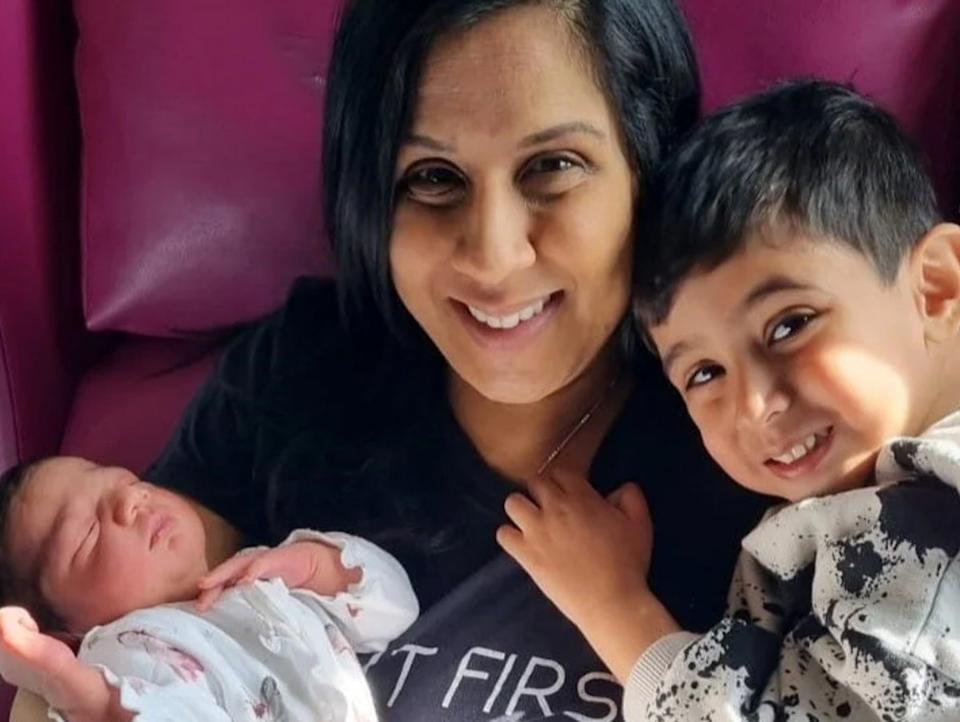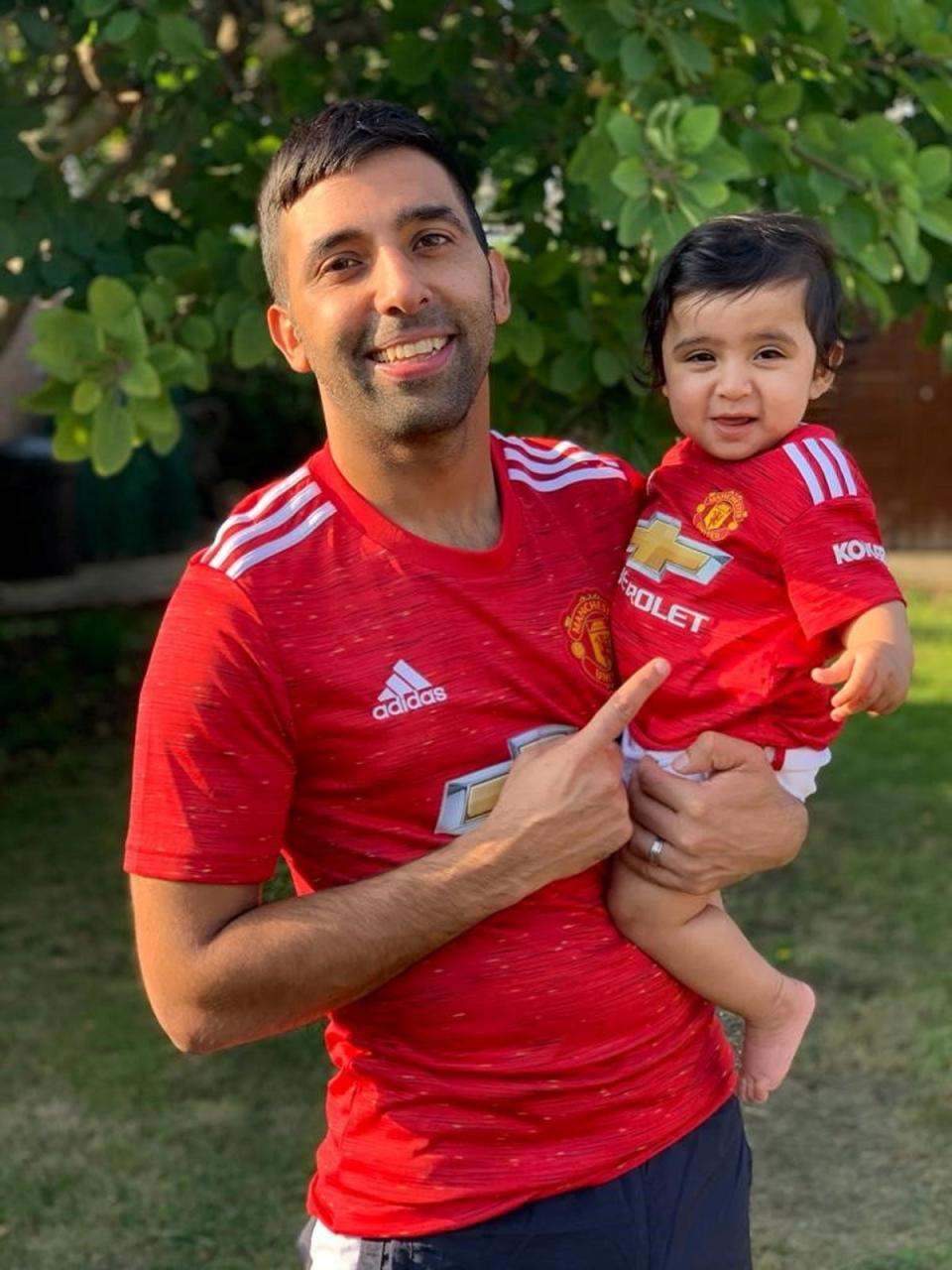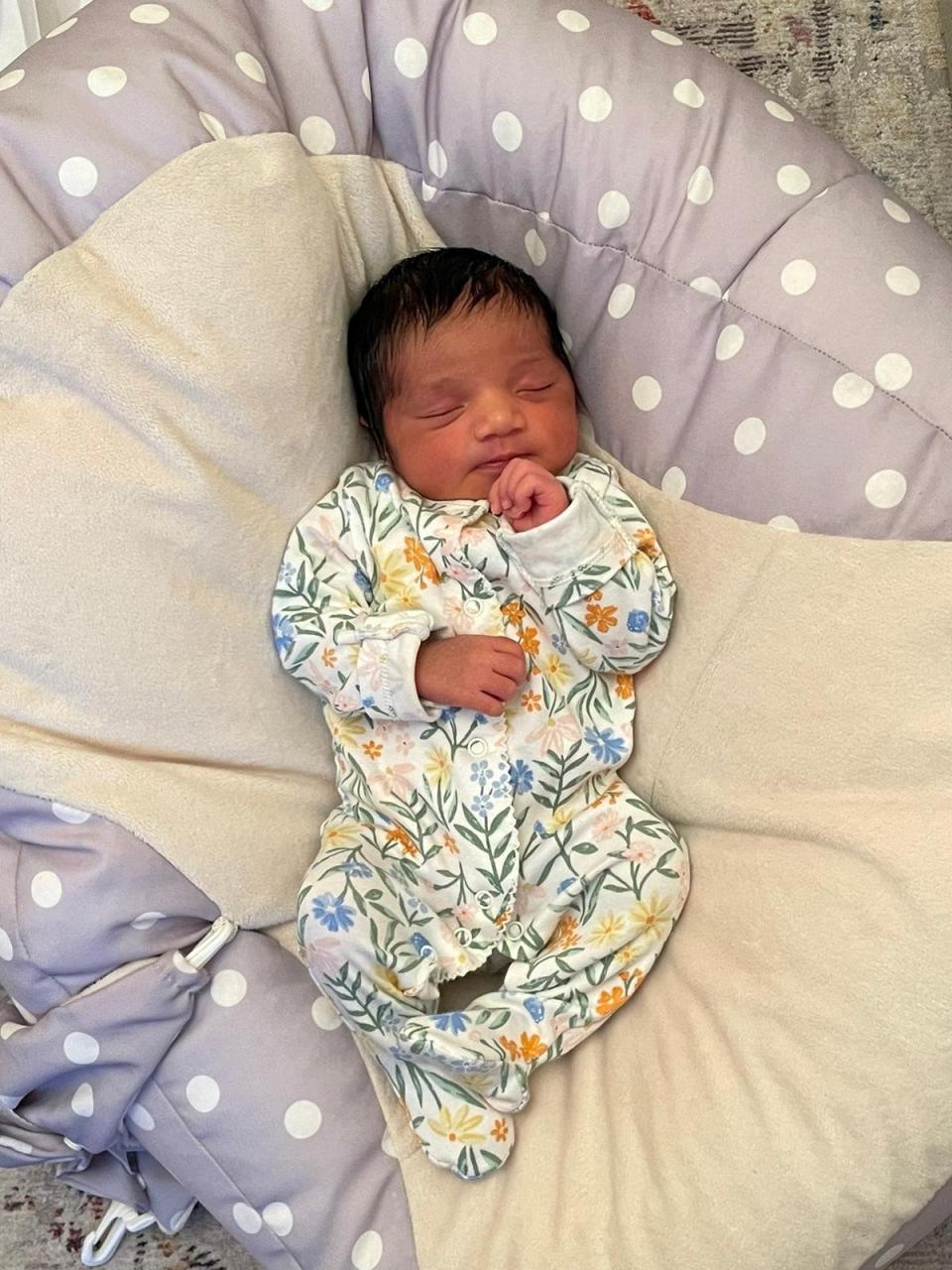Woman who lost husband to brain tumour gives birth to their daughter 16 months after he died

A woman who lost her husband to a brain tumour has given birth to their second child through IVF just 16 months after he died.
Jadsip Sumal had her daughter Amandeep on 9 April this year, more than a year after losing her husband Aman Sumal.
Mr Sumal was diagnosed with a grade four brain tumour after suffering a seizure and headaches in August 2020.
He went through chemotherapy and intensive radiotherapy but his health continued to deteriorate and he died in December 2021, aged 36. He left behind his wife and two-year-old son, Rajan.
After her husband’s death, Mrs Sumal took the decision to fulfil her and her partner’s dream to have another child.
She gave birth to their daughter on Easter Sunday this year, a week before what would have been her husband’s 38th birthday.
Mrs Sumal, a data analyst from Ruislip, west London, said: “We had our son through IVF in 2019 and we always planned to have another child, but then Aman got sick and everything after that was a whirlwind so we never got the chance.
“I thought about doing it while he was still here.
“I knew he didn’t have long and thought it would be a nice thing to tell him if he could understand me, but he passed away in December 2021 and after that I was coping with the grief of losing him.

“I still wanted to have a family though, and knew there would never be a good time,” she continued
“It was always the plan to have a sibling for Rajan, and that was important to Aman too, so I decided to go ahead with it.
“Aman’s strength is what showed me I could do it. He was so strong during what was an incredibly hard time and I knew nothing I did would be harder than that.”
Initially, it was thought Mr Sumal had a low-grade tumour and he was given anti-seizure medication and referred for three-monthly scans.
However, after having another seizure five months later, an MRI showed areas of concern and he underwent debulking surgery.
A biopsy revealed it was a grade 4 glioblastoma (GBM), an aggressive brain tumour with a short prognosis of just 12-18 months.

Mrs Sumal fell pregnant in August 2022, eight months after his death, and on April 9 this year she gave birth to a healthy baby.
She said: “Aman was over-the-moon with Rajan but always said ‘I have one of me and it would be nice to have one of you too’.
“I know he would have been all over our daughter. It’s just such a shame he won’t ever get to meet her.
“It’s bittersweet, which is what I think everyone struggles with, but hopefully she’ll bring acceptance that Aman’s gone and that the next chapter for all of us is the kids.
“I have a big family and had so much support throughout. I couldn’t have done it without them.
“My sisters-in-law came to my appointments with me and were my labouring partners, so I didn’t have the worry of being alone.”
Mrs Sumal and her family have supported Brain Tumour Research since her husband’s diagnosis and continue to raise awareness and funds for the charity.
According to the charity, 16,000 people each year are diagnosed with a brain tumour in the UK and just 12 per cent of those diagnosed with a brain tumour survive beyond five years compared with an average of 54 per cent across all cancers.
Charlie Allsebrook, community development manager for Brain Tumour Research, said: “We were over-the-moon to learn about the birth of Amandeep, which has come as such a blessing for her family.
“Her mum Jasdip has shown incredible strength since Aman’s passing and is much admired by the team at Brain Tumour Research.
“Aman’s sad story is a stark reminder that brain tumours kill more children and adults under the age of 40 than any other cancer, yet just 1 per cent of the national spend on cancer research has been allocated to this devastating disease.
“We’re determined to change this but it’s only by working together we will be able to improve treatment options for patients and, ultimately, find a cure.”

 Yahoo Sport
Yahoo Sport 





































